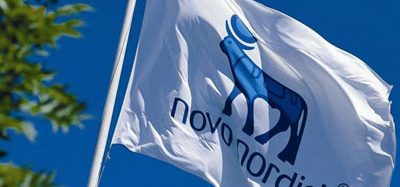Industry Insight: An interview with Søren Morgenthaler Echwald
Posted: 2 August 2008 | EPR | No comments yet
European Pharmaceutical Review speaks to Søren Morgenthaler Echwald, Vice President of Business Development at Exiqon regarding new developments in microRNA.
European Pharmaceutical Review speaks to Søren Morgenthaler Echwald, Vice President of Business Development at Exiqon regarding new developments in microRNA.
European Pharmaceutical Review speaks to Søren Morgenthaler Echwald, Vice President of Business Development at Exiqon regarding new developments in microRNA.
What methodologies do Exiqon employ to ensure they stay at the front of the industry?
Our success is based on two pillars: intelligent probe/array design combined with our proprietary Locked-Nucleic-Acid (LNA™) technology. Locked Nucleic Acids (LNA™) are a class of high-affinity nucleic acid analogs. Insertion of LNA™ into DNA oligonucleotides increases the binding affinity of that oligonucleotide to its complementary DNA or RNA target. The higher affinity is shown by marked increases in the melting temperature (Tm) of the duplex. LNA™-modified oligonucleotides considerably improve specificity, allowing single-nucleotide-mismatch discrimination that enables optimal differentiation between closely related members of the same microRNA family. These unique properties of LNA™ oligonucleotides have been shown to enable sensitive and specific detection of microRNAs in several different applications, including microarray profiling, in situ hybridisation, and quantitative PCR.
What new products are on the horizon? What excites you the most?
Exiqon has developed a very sensitive PCR-based product for microRNA profiling which we are extending and rolling out at the moment. This will be a very valuable tool for researchers in all microRNA-related fields.
Furthermore, with the acquisition of Oncotech we can now access a very large tumour bank containing more than 150,000 paraffin-embedded human tumours and over 45,000 viably cryopreserved primary tumours. With our Extreme Drug Resistance (“EDR”) Assay, Oncotech’s laboratory has the unique ability to identify drug resistance in cancer patients prior to chemotherapy treatment, saving them unnecessary treatment related morbidity and cost. Since we already have drug resistance data on the tumours in our bank, our Pharmaceutical Services Division now has the ability to use viable human tumours (not cell lines) from our tumour bank to establish an EDR Assay algorithm for new drugs in development. Once the algorithm is established, we are able to predict the response of tumours to this new compound. Stratified tumours can be analysed by IHC, gene array, miRNA array or CGH array to identify biomarkers for response.
Looking to the future, what is your main goal in 2009?
Exiqon holds a strong position in the microRNA field and we will continue to grow this business in 2009. As the microRNA family grows we will update our products to keep up with coverage but at the same time we plan to bring new and updated product lines to the market to support the research by our customers.
Can you tell us a little bit more about miRCURY LNA™ microRNA Arrays for expression profiling?
MicroRNA profiling performed on our new generation miRCURY LNA™ microarray platform gives unrivaled accuracy and sensitivity. Due to the incorporation of high affinity LNA™, more than 90% of our probes have a detection limit ≤ 10amol. Combined with our labelling kit, it is possible to profile samples with as little as 200ng total RNA. Our current microarrays contain probes for all organisms and viruses listed in miRBase, and have very high miRBase coverage. LNA™ also allows us to design Tm normalised probes, which means all microRNA bind with comparable affinity and high specificity, despite differences in sequences. Also, we are able to design probes that are insensitive to 3’ and 5’ heterogeneity in microRNAs.
What is your mission statement?
Exiqon combines leading-edge scientific expertise in gene expression with our proprietary LNA™ technology. Our products, services and scientific staff enable life science researchers to make groundbreaking discoveries. Moreover, we are addressing the un-met need for a new approach to the diagnosis of cancer.
About the author
Søren Morgenthaler Echwald graduated with a M.Sc. in Chemistry & Genetics (1993), and a PhD (1998), before joining Exiqon in 2001. He was promoted to Senior Manager, Business Development in 2003, and since 2006 he has served as Vice President in charge of Business Development, including licensing, patent strategy and market research. Søren Morgenthaler Echwald previously held a position of Senior Scientist with Steno Diabetes Center (Novo Nordisk A/S) focusing on the development of gene diagnostics within obesity and diabetes, and he has co-authored more than 50 scientific articles.








